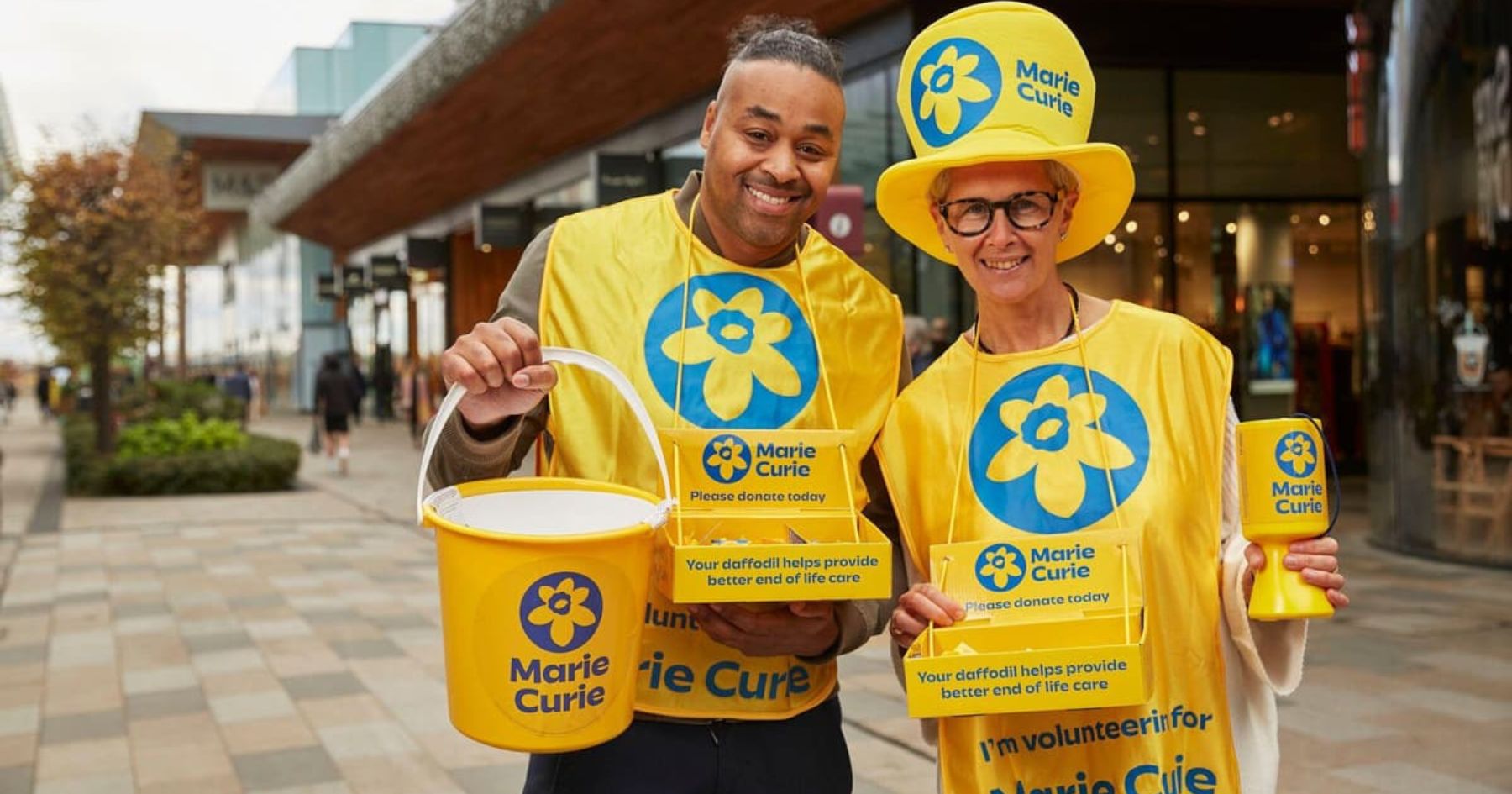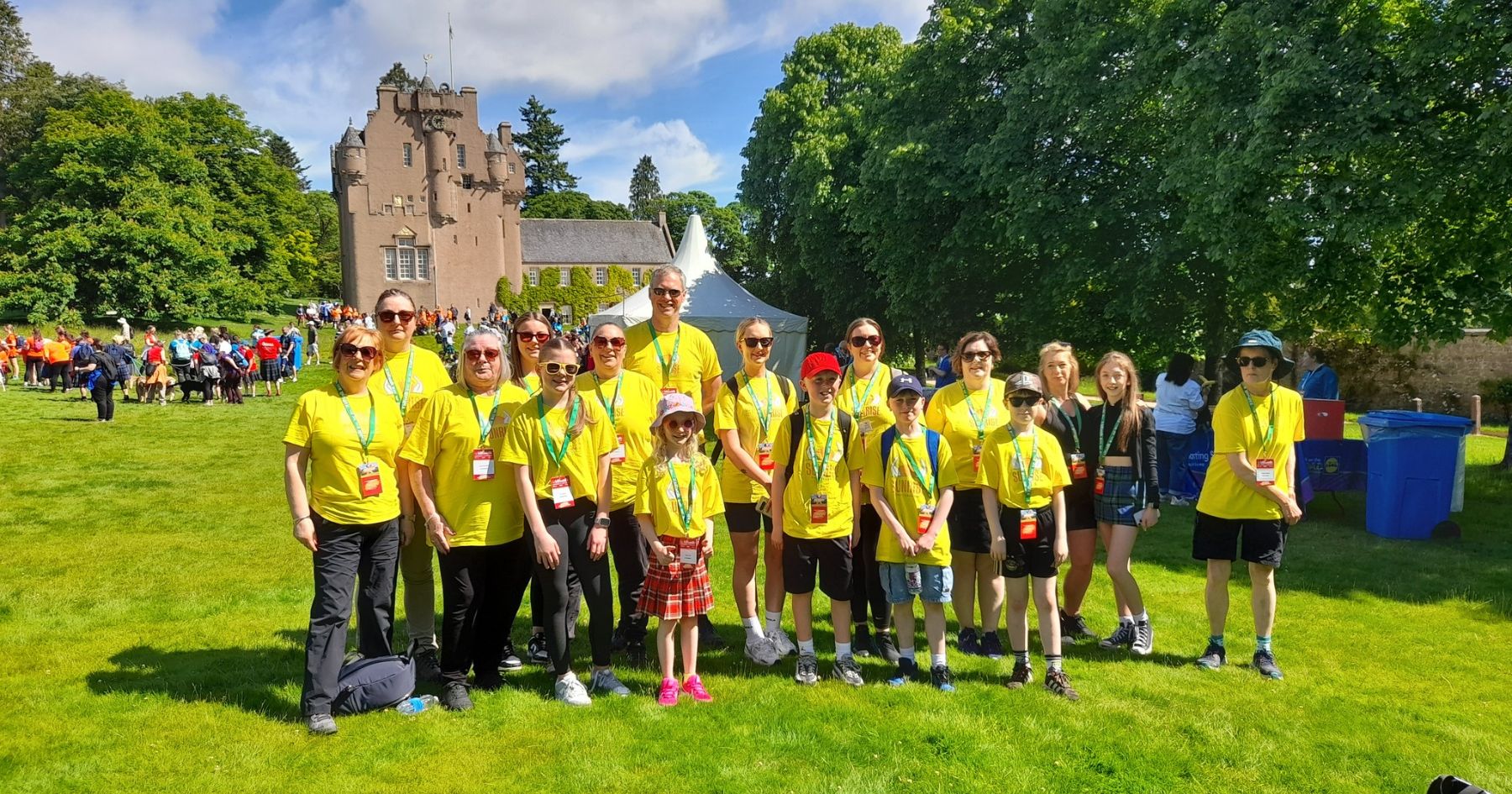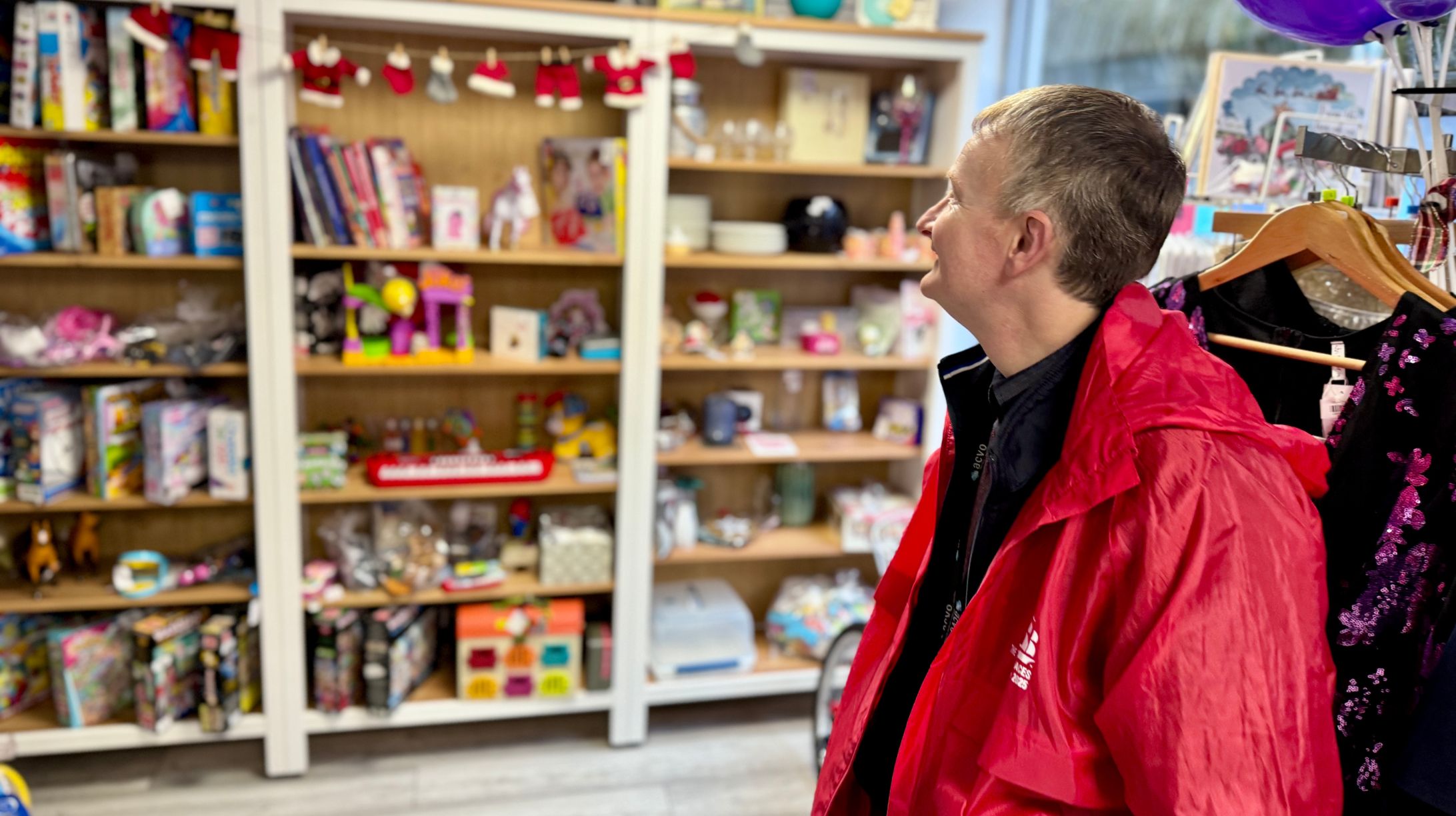Transforming lives with the Alcohol & Drugs Action Garden Project


.png)

Nestled in Aberdeen’s Grove Nursery lies the Alcohol & Drugs Action Garden Project; a sanctuary where seeds are sown, connections are made, and lives are transformed. Every Wednesday throughout the year, a diverse group of volunteers, each with their own story and motivation, come together to tend to the garden while developing meaningful and supportive social connections.
With their dedication, commitment, and compassion, volunteers like Judith, Carol, Neil, and Terry are sowing the seeds of change, one plant at a time. As the garden blossoms and thrives, so too do the spirits of those who tend to it every Wednesday at their volunteering sessions.
"We are always on the lookout for volunteers and need people who are quite down to earth and approachable," Judith notes, emphasising the importance of creating a welcoming environment at the garden. In return, volunteers are offered not only the chance to hone their gardening skills but also opportunities for personal development through training programs and community engagement initiatives.
If you are inspired by the stories below, new volunteers are always welcome at the ADA garden; in giving your time you have the opportunity to get a lot back in return.
Get involved: Volunteer in Aberdeen!
There are hundreds of different ways you can give your time as a volunteer in Aberdeen! The great thing about volunteering is that it is so inclusive, no matter your experience, time you have to give or age, there is a volunteer opportunity to suit you and an organisation in Aberdeen that would really value your contribution.
Have a look below at some of our recently added opportunities and discover how you can make a big difference in your local community!

Judith – Cultivating Growth and Community
As well as being a Sessional Worker with ADA, Judith gives her time as a volunteer at the garden. Her journey began eight years ago when Judith, at the time working as a self employed gardener, was approached by a friend who mentioned that ADA were in the process of establishing a community garden and were looking for some advice on how to get it going. Little did she know that this initial step would lead her down a path of personal fulfilment.
"I just enjoyed meeting the guys, just doing something different, meeting people that I wouldn't normally meet," she reflects. For Judith, the garden is more than just a place to grow fruits and vegetables; it's a space where hope can take root and relationships can flourish.
"There’s kind of two sides to the garden and our motivations behind it" Judith explains. "On the one hand, there's growing something from scratch from seed, it's quite a hopeful thing to do. It's difficult to know what's going to be successful with gardening sometimes but I think that’s part of the appeal – there’s that element of personal growth that comes with learning and first hand experience of trial and error when growing plants."
Beyond the horticultural aspect, Judith emphasises the social dimension of the garden, highlighting its role in combating loneliness and fostering connections among individuals in recovery. "Helping people in their recovery, and being part of that process is a big part of the appeal of volunteering for me. You can really see the growth and positive difference it makes to peoples lives" she shares.
"Also, you just meet a lot of really nice people, good people, great characters and have a lot of fun."
Reflecting on her experience, Judith affirms, "It's been one of the best things I've ever done. I've met a lot of really good people, made a lot of really good friends, had a lot of experiences that I wouldn't have had otherwise." For her, the garden is not just a place; it's a testament to the transformative power of community and connection.
But sustaining the garden requires more than just soil and seeds; it demands dedicated volunteers like Judith who bring commitment, reliability, and enthusiasm to the project.
Neil – Taking Root with New Beginnings
Neil's journey to the ADA garden began with a simple referral from his support worker, Adele, and an invitation to discover the benefits volunteering can offer.
“Adele, she knew I liked gardening and suggested that I come along and give it ago” he reflects. “If I’m honest it was to save me from sitting around all day but now I’ve started to come along I think it’s magic. I’ve not missed a week since”
For Neil, the garden is a source of stability in the face of personal transition. "It gets me up and out of my bed in the morning," he shares. "I’m going through a bit of a challenging time at the minute and this has really helped me; it’s given me a focus and a bit of a routine”.
“My dad had two allotment plots in Tullos when I was young. We grew all our vegetables there so it’s something I learned about from an early age and have always enjoyed doing. I’ve met a lot of lovely people here too, having the chance to get to know them all has been great for me.”
Reflecting on the transformative power of gardening, Neil emphasises its universal appeal. "The reason I like gardening? It's life itself, isn't it?" he muses. “You put a little wee tiny seed in and then five months later, you're eating something off of it. It's pretty amazing isn't it really?”


Terry – Planting Seeds of Change
By this September, Terry can boast being nine-year veteran of the ADA garden. For, him volunteering is not just about tending to plants; it's about being part of a community.
"I like being up here and working with other folk," he reflects. "But at the same time, if you want to take some time to yourself you are left just to get on with it. There’s no pressure here, you can do what you are in the mood for doing, everyone pitches in and does their bit.
"It was one of my chums who said to me first of all that I should come along and give it a go, and I’ve never looked back" he recalls. For Terry, the garden represents a second chance. "It's good to give something back," he affirms. "I've done a lot of wrong things in my life but I appreciate the opportunity to contribute to the community with my volunteering”.
Terry’s job for the day is planting potatoes for harvest later in the year. "In about three months, they start flowering at the top, and that's when they are ready," he explains.
“Getting to eat what you have grown is one of the bonuses of volunteering here although in summer you can get a bit fed up of eating strawberries all the time but I suppose it’s nae a bad problem to have!”
Carol – Nurturing Growth, One Seed at a Time
Carol recently joined the Recovery Garden as a volunteer after retiring from her job of 17 years as an Outreach Worker at ADA. Her motivation for volunteering came from the want to maintain connections with others within the community.
"I really miss helping other people," she admits. "It's also a way of having company on a Wednesday morning and getting to chat, as well as having the chance to get out the house and stay active.”
Echoing Judith's sentiments, Carol underscores the value of gardening with regard to mental wellbeing, describing it as a grounding experience that offers respite from the monotony of daily routines. "I find gardening is a therapeutic thing," she reflects. "You often forget what day it is when you're not working, it gives you a purpose, a reason to get out the house and to keep fit."
But beyond the personal benefits, Carol recognises the garden's wider impact on the community. "It's nice that there is this green space that people can come to and have a sense of ownership over while doing something for the community at the same time.”



The Chair and Board Members will decide how to invest long term funding in projects that strengthen community cohesion, revitalise shared spaces, enhance local amenities, and ensure residents have a real voice in shaping their neighbourhood’s future.


Volunteering for the Great Daffodil Appeal is flexible and straightforward, and you can even volunteer with family or friends. By giving up just a couple of hours to distribute the charity’s iconic daffodil pins in exchange for a donation, volunteers will raise crucial funds that will enable Marie Curie to continue delivering expert end of life care and support to more people in Aberdeen and shire.


Sunrise Partnership is a small, local charity providing free, confidential and therapeutic support to children and young people across Aberdeen and Aberdeenshire who have experienced bereavement or significant loss. To strengthen our Board and support our continued sustainability, we are inviting applications for the voluntary role of Treasurer.
Sign up for our mailing list
.png)
Stay up to date with the latest news and opportunities from ACVO & Volunteer Aberdeen

.png)













